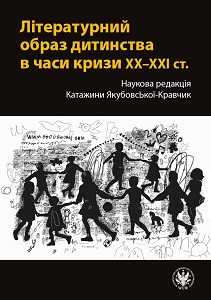ВИХОВАННЯ „НОВОЇ ЛЮДИНИ”: УКРАЇНСЬКА ДИТЯЧА ПРОЗА 1930-Х РОКІВ ЯК ВІДОБРАЖЕННЯ РАДЯНСЬКОГО АНТРОПОЛОГІЧНОГО EКСПЕРИМЕНТУ
Educating the „new man”: Ukrainian children’s prose of the 1930s as a reflection of the soviet anthropological experiment
Author(s): Olga Kharlan
Subject(s): Cultural history, Theoretical Linguistics, Applied Linguistics, Studies of Literature, Ukrainian Literature, Philology
Published by: Wydawnictwa Uniwersytetu Warszawskiego
Keywords: children’s literature; socialist realism; totalitarian epoch; „school” prose; education literature
Summary/Abstract: Understanding children’s literature of the tragic 1930s for Ukrainian literature makes it possible to understand the essence of the Bolshevik government’s experiment in building a „new society” and forming a „new man”. Prose works "Morning" (1933) by Ivan Mykytenko, "Very Good" (1936) and "Tenth-graders" (1938) by Oleksandr Kopylenko, "School over the Sea" (1937) by Oles Donchenko, "Childhood" (1936), "Our Secrets" (1936), "Eighteen" (1938) by Yuri Smolych, Mykola Trublaini’s Schooner "Columbus" (1940) form an idea of childhood as a life stage in which important universal humanistic values (friendship, fidelity, responsibility, etc.) are formed, but also modeled the image of a member of a new society, for whom the public prevails over the personal, establishes a special black-and-white picture of the world in opposition to „own / enemy”. The idealization of „Soviet childhood” actualises the literature, which in its own way comprehends the children’s experience of an ambiguous social era.
Book: Літературний образ дитинства в часи кризи XX–XXI ст. - Наукова редакція Катажини Якубовської-Кравчик
- Page Range: 34-43
- Page Count: 10
- Publication Year: 2021
- Language: Polish, Ukrainian
- Content File-PDF

